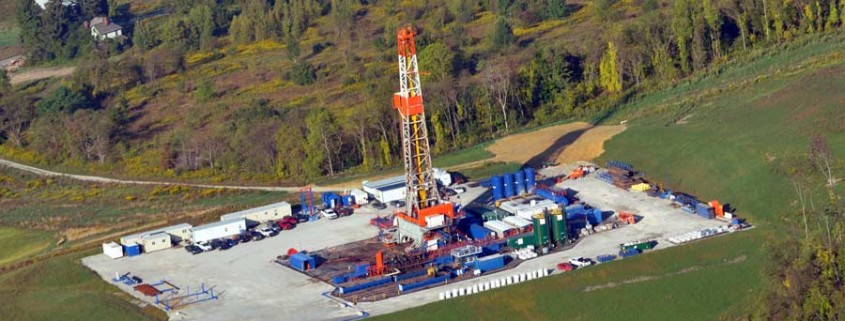- An Alliance For Community Action
- (970) 256-7650
- info@WesternColoradoAlliance.org
Judge cites climate in rejecting BLM plan to double drilling
[from a joint press release with Wilderness Workshop, Western Environmental Law Center, Natural Resources Defense Council and Sierra Club]
On October 17, Judge Lewis T. Babcock issued an important decision finding that a Bureau of Land Management (BLM) plan to drastically expand oil and gas drilling on Colorado’s Western Slope failed to adequately analyze the climate impacts of increased greenhouse gas emissions from downstream oil and gas consumption. The plan also failed to consider any alternative land use in the area that would meaningfully limit oil and gas drilling. The judge ordered the BLM to consult with the environmental groups involved in the case to find a solution.
“BLM’s claim that it is impossible to know whether doubling this area’s well concentration would have a significant impact on our climate illustrates how aggressively irresponsible BLM can be in its pursuit of total oil and gas saturation on our public lands,” said Kyle Tisdel, attorney at the Western Environmental Law Center. “Having to fight our own government in court, time after time to get it to follow the laws that protect our climate, wastes precious time we don’t have. The recent IPCC report spells out just how urgently we should all be working together to limit climate change.”
The Colorado River Valley Resource Management Plan (RMP) acts as a blueprint, guiding how BLM will manage the area’s public lands and minerals over 20 years. This is longer than the period in which meaningful and serious action must be taken if we are to stem the worst of growing impacts from climate change. Thankfully, the court order rejects the BLM’s assertion in this plan that “it is beyond the scope of analysis” to disclose downstream greenhouse gas emissions and associated climate change impacts of the agency’s decisionmaking, while also rejecting the agency’s prioritization of oil and gas above other resource values on our public lands.
“As a long-term Garfield County resident surrounded by oil and gas development on BLM-managed public lands, I am glad to see the BLM being held to a more rigorous level of analysis,” said Bob Arrington, a resident of Battlement Mesa and member of Western Colorado Alliance. “The Colorado River Valley BLM did not take into full account all the impacts tripling the number of wells on the public lands in our area would have on residents like me. The BLM must now consider alternatives that don’t prioritize oil and gas above other uses on our public lands, hopefully reducing well counts and hazardous hydrocarbon emissions. This decision is a step towards ensuring that every BLM field office fully accounts for all the impacts on people living in the area when making these decisions.”
The Colorado River Valley Field Office oversees much of the public land in the Piceance Basin, where more than 10,000 active oil and gas wells already exist. BLM’s plan projects an additional 6,640 new wells would be drilled into federal minerals in the area during the next 20 years, not including any private wells. The plan would have left 603,100 acres open to oil and gas leasing, closing just 2,500 acres in the high potential area for oil and gas.
“The court’s decision reinforced the federal government’s legal obligation to analyze and disclose to the public the impacts of emissions resulting from the oil and gas made available by its plans,” said Alison Kelly, senior attorney with Natural Resources Defense Council. “The American public deserves to know whether federal government decisions regarding the use of our public lands for fossil fuel development are hindering efforts to combat climate change.”
“For years we have asked BLM to take a hard look at the impacts of oil and gas development on public lands, and protect some areas from this intensive use. On some issues we’ve made progress. In this plan, however, BLM basically left open all our public lands to future leasing and development,” said Wilderness Workshop staff attorney Peter Hart. “We deserve a more thoughtful approach to public land management, and the law requires it. This opinion makes that clear.”
“Science tells us that drilling for dirty fuels – especially fracking – causes serious harm to human health and the environment,” said Nathan Matthews of Sierra Club. “BLM ignored this evidence when it decided to allow additional drilling for oil and gas in the Colorado River Valley. BLM can’t sweep these issues aside, and if it had taken a serious look at the issues, it would have recognized that drilling for oil and gas on our public lands is wrong.”
A copy of the judge’s decision is available here.
Kyle Tisdel, Western Environmental Law Center, 575-613-8050, tisdel@westernlaw.org
Peter Hart, Wilderness Workshop, 303-475-4915, peter@wildernessworkshop.org
Emily Hornback, Western Colorado Alliance, 970-256-7650, emily@westerncoloradoalliance.org
Jake Thompson, Natural Resources Defense Council, 202-289-6868, jthompson@nrdc.org
Gabby Brown, Sierra Club, 914-261-4626, gabby.brown@sierraclub.org
Emily stepped up as our staff director in 2017, but originally joined our team as a community organizer in 2013. Born and raised on the Western Slope, Emily graduated from Colorado State University and then had the privilege of learning from and working alongside organizers in Central and South America as well as Appalachian coal country. They returned to their home state to protect the land they love and work with fellow Coloradans for a healthy, just and self-reliant future for our rural communities. Emily enjoys organizing, exploring the Colorado Plateau, country music and punk concerts with equal passion.


